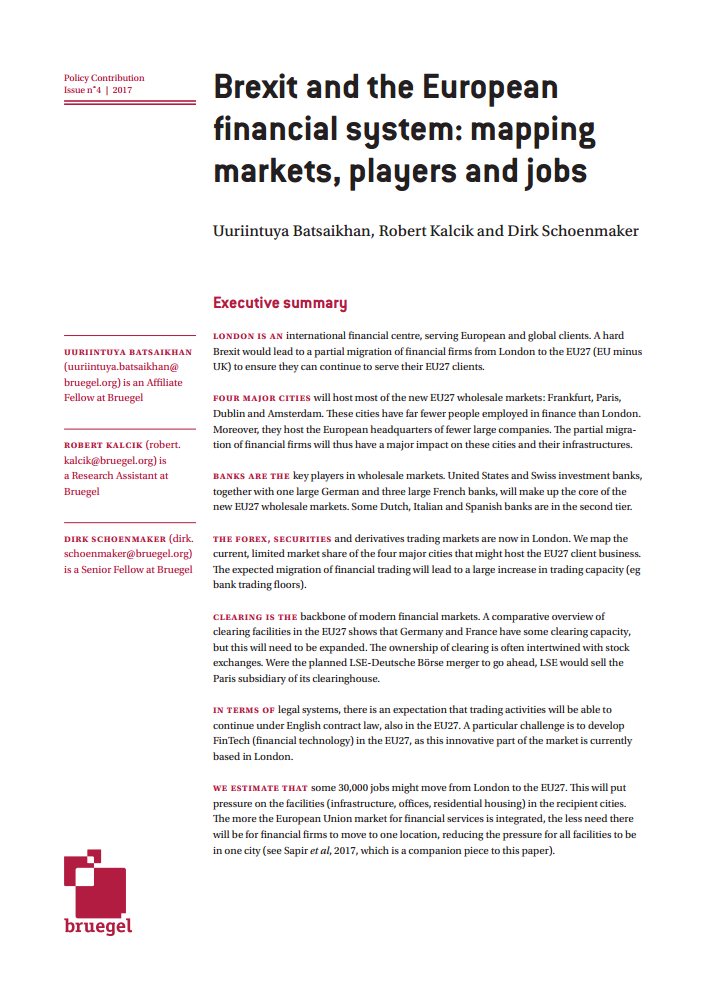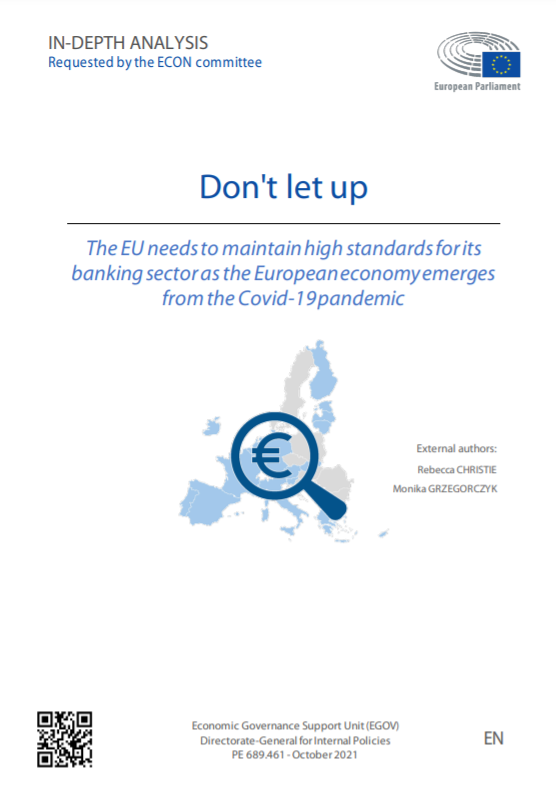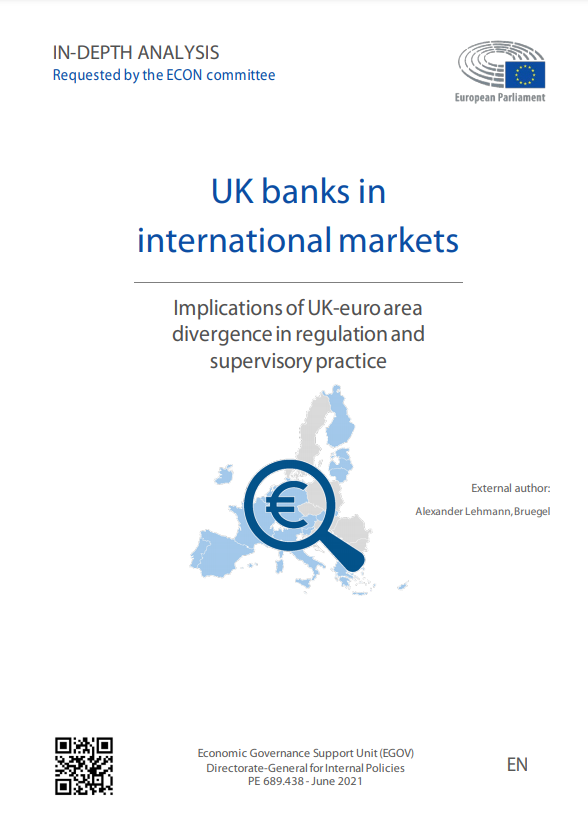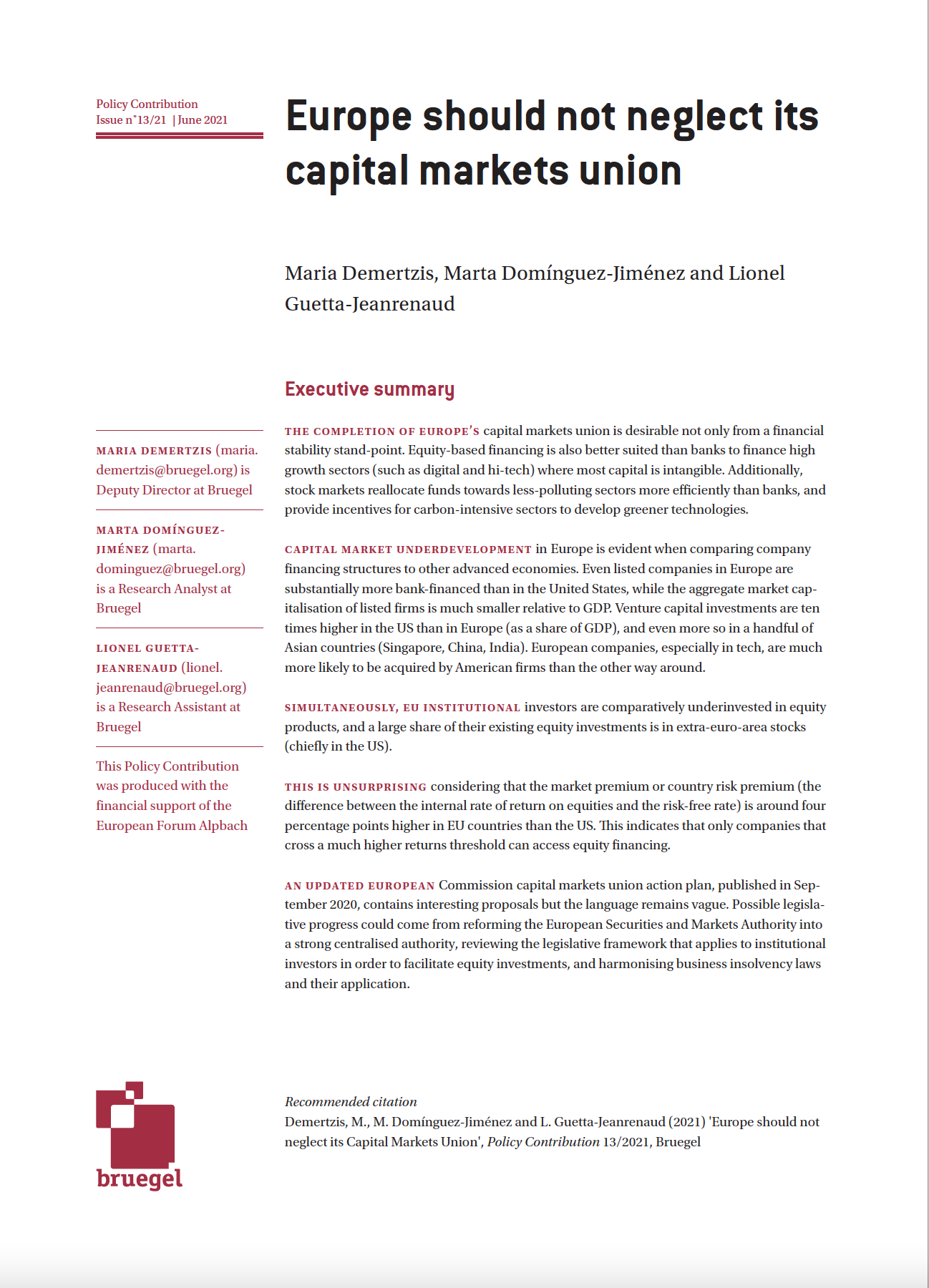Policy Contribution
Brexit and the European financial system
Brexit will lead to a partial migration of financial firms from London to the EU27. This Policy Contribution provides a comparison between London and four major cities that will host most of the new EU27 wholesale market: Frankfurt, Paris, Dublin and Amsterdam. It gives a detailed picture of the wholesale markets, the largest players in these markets and the underlying clearing infrastructure. It also provides data on professional services and innovation.
London is an international financial centre, serving European and global clients. A hard Brexit would lead to a partial migration of financial firms from London to the EU27 (EU minus UK) to ensure they can continue to serve their EU27 clients.
Four major cities will host most of the new EU27 wholesale markets: Frankfurt, Paris, Dublin and Amsterdam. These cities have far fewer people employed in finance than London. Moreover, they host the European headquarters of fewer large companies. The partial migration of financial firms will thus have a major impact on these cities and their infrastructures.
Banks are the key players in wholesale markets. United States and Swiss investment banks, together with one large German and three large French banks, will make up the core of the new EU27 wholesale markets. Some Dutch, Italian and Spanish banks are in the second tier.
The forex, securities and derivatives trading markets are now in London. We map the current, limited market share of the four major cities that might host the EU27 client business. The expected migration of financial trading will lead to a large increase in trading capacity (eg bank trading floors).
Clearing is the backbone of modern financial markets. A comparative overview of clearing facilities in the EU27 shows that Germany and France have some clearing capacity, but this will need to be expanded. The ownership of clearing is often intertwined with stock exchanges. Were the planned LSE-Deutsche Börse merger to go ahead, LSE would sell the Paris subsidiary of its clearinghouse.
In terms of legal systems, there is an expectation that trading activities will be able to continue under English contract law, also in the EU27. A particular challenge is to develop FinTech (financial technology) in the EU27, as this innovative part of the market is currently based in London.
We estimate that some 30,000 jobs might move from London to the EU27. This will put pressure on the facilities (infrastructure, offices, residential housing) in the recipient cities. The more the European Union market for financial services is integrated, the less need there will be for financial firms to move to one location, reducing the pressure for all facilities to be in one city (see Sapir et al, 2017, which is a companion piece to this paper).
















